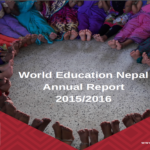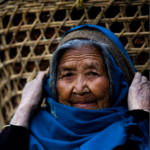
Since its start in 1976, World Education Nepal has been a leader in improving basic literacy for poor and marginalized groups in Nepal. Using a holistic approach, World Education Nepal has provided thousands of women and marginalized groups the foundation to build their own livelihoods through economic and literacy classes. This photo documentary shows some of the women and communities we have worked with in the Gulmi and Arghakhanchi districts. Literacy and economic classes make a difference for many Nepalis across the country, and this photostory is a testimony to this fact.
Resunga Mahila Karyakram_Nepal
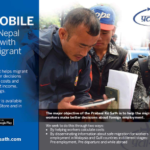
Prabasi Ko Saath (प्रवासीको साथ) is a mobile app that helps migrant workers make better decisions about foreign employment. The app provides migrant workers tools to calculate costs, expenses and savings while working abroad. In addition, it shares resources about safe migration practices during each state of migration: pre-employment, pre-departure and abroad.
Download the app at www.prabasikosaath.com
प्रवासीको साथको मुख्य उद्धेश्य वैदेशिक रोजगारीका सम्बन्धमा कामदारहरुलाई प्रभावकारी निर्णय गर्नमा सहयोग गर्नु हो ।
यो दुइ तरिकाले गर्न खोजिएको छ :
कामदारहरुलाई खर्च विवरण सम्बन्धि हिसाव गर्न सहयोग गरेर ।
वैदेशिक रोजगारका लागि मलेसिया र खाडि मुलुकहरुमा जाने कामदारहरुको विविध तीन चरणहरुमा आवश्यक सुरक्षित बसाइसराई सम्बन्धी जानकारी प्रदान गरेरः विदेश जाने तयारीमा, प्रस्थान गर्नु अघि, विदेशमा हुँदा ।
डाउनलोड गर्नुहोस् : http://www.prabasikosath.com/nepali.html
When Dikchhaya was a girl, she was forced to drop out of school because her parents could not afford her school fees. She entered a life of bonded labor, and then fought as a soldier during the armed conflict in Nepal. After the war, she struggled to earn enough money to feed her family and could not pay for her daughter to go to school.
Dikchhaya wants her daughter Liza to have a better life than she did.
World Education is working in Dikchhaya’s community to improve the overall quality of education, involve mothers in their children’s learning, and help mothers start small businesses to support their families. Dikchhaya joined a World Education mother’s group where she learned basic education and entrepreneurship skills. She took out a loan through the program to open her own small shop, selling snacks and supplies near a school, and pays Liza’s school fees with the income.
Now that Dikchhaya can afford to send Liza to school regularly, Liza’s grades are improving and she is learning to read. World Education also works with teachers, school management, and local governments to improve the quality of education for Liza and other students in Nepal. Liza and Dikchhaya are just two of the more than 120,000 Nepalese children and adults who benefited directly from World Education’s comprehensive learning programs in 2016.
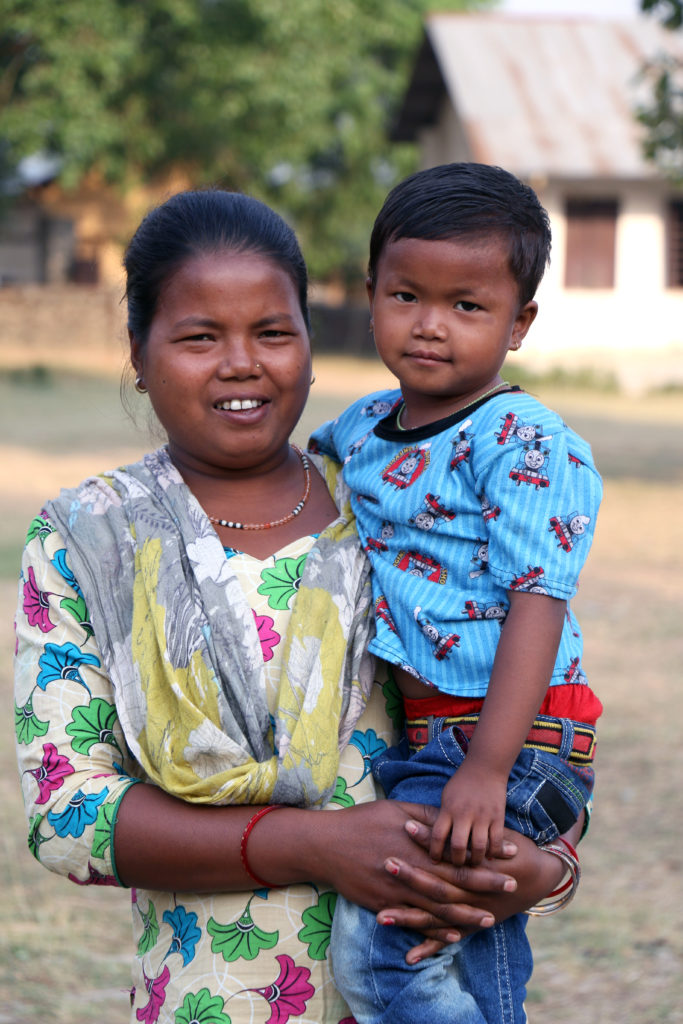
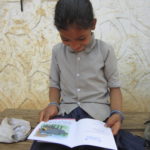
In Nepal, teaching and learning reading in the early grades remains a significant challenge,with most primary school students unable to read at grade level. Although enrollment in public schools is high, drop-out and grade repetition are common-place. Teachers often resort to rote instruction methods, resulting in memorization rather than actual reading. World Education and its partners are working to strengthen early grade reading in the weakest public schools through learning assessments, teacher training, and the introduction of grade-appropriate reading materials and activities for early learners.

Worldwide, the use of child soldiers is seen as one of the worst forms of child labor; during the People’s War in Nepal, many children under the age of 18 became involved with different armed groups. This document highlights how World Education and its partners used community sensitization and reintegration activities to assist children who had been associated with armed forces or groups. This booklet also identifies the most successful approaches and the major challenges faced by children returning to school or those in vocational training and apprenticeships. Part of a series that comprises the final report funded by the U.S. Department of Labor.

The end of the civil war in Nepal brought an explosion of the adult entertainment sector and, as a result, an increase in the number of children being sexually exploited. This report provides background information about the child trafficking situation in Nepal and highlights ways that the program worked to withdraw girls from the adult entertainment industry and reintegrate them into schools. The booklet also identifies successful approaches for working with victims, ways to attract students into education programs, major challenges faced by victims, and complimentary services available to victims as safety resources. Part of a series that comprises the final report funded by the U.S. Department of Labor.
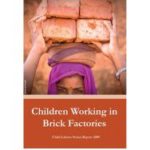
Rapid population growth and increased urbanization in Nepal have created a demand for brick workers. Many of these workers are migrant children whose families have moved from rural areas in search of work. This booklet presents an overview of the child labor situation in the brick industry, as well as strategies being implemented to address the situation. World Education’s work through program to address this aspect of child labor includes nonformal education, vocational education, parent teacher associations, and support to attend formal schools. Challenges and lessons learned in each of these areas are also presented. Part of a series that comprises the final report funded by the U.S. Department of Labor.
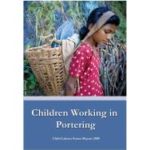
Child porters are those who carry loads for income. These children, typically the poorest of the poor, are often encouraged to miss school and carry heavy loads in order to earn extra cash to support their families. This report highlights World Education’s efforts through the program to assist children working in portering. The booklet includes context, nonformal, formal and vocational education support provided, challenges, lessons learned, and best practices/recommendations. Part of a series that comprises the final report funded by the U.S. Department of Labor.
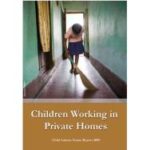
This document focuses on the ways that World Education have assisted children working as domestic helpers in private homes in Nepal. The booklet highlights nonformal education, vocational education, and economic education programs, as well as other services such as child protection committees, community mobilization projects, and local government and private sector efforts. Additional information about successful approaches, outcomes, major challenges and lessons learned are covered by region. Part of a series that comprises the final report by the U.S. Department of Labor.

